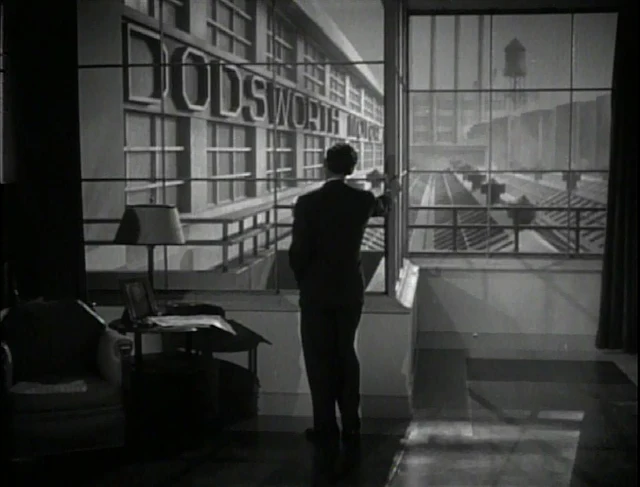 |
| Walter Huston in Dodsworth |
Sam Dodsworth: Walter Huston
Fran Dodsworth: Ruth Chatterton
Edith Cortright: Mary Astor
Arnold Iselin: Paul Lukas
Captain Lockert: David Niven
Kurt Von Obersdorf: Gregory Gaye
Baroness Von Obersdorf: Maria Ouspenskaya
Matey Pearson: Spring Byington
Tubby Pearson: Harlan Briggs
Renée de Penable: Odette Myrtil
Emily: Kathryn Marlowe
Harry: John Payne
Director: William Wyler
Screenplay: Sidney Howard
Based on the play adapted by Sidney Howard
from a novel by Sinclair Lewis
Cinematography: Rudolph Maté
Art direction: Richard Day
Music: Alfred Newman
Costume design: Omar Kiam
I have a feeling that
Dodsworth is not quite as well known as it ought to be. It's one of the few Hollywood dramas of the 1930s that seem to have been made for grownups, avoiding melodrama and sentimentality in its treatment of marriage and growing old, and sidestepping the Production Code's infantilizing attitudes toward adultery and divorce. And most of all, it has a wonderful performance by Walter Huston, who was nominated for an Oscar but lost, rather shamefully, to Paul Muni's hammy turn in
The Story of Louis Pasteur (William Dieterle, 1936). Huston's Sam Dodsworth is a captain of industry, founder of an automobile company, who decides to sell the business and spend the rest of his life figuring out what to do with himself. His wife, Fran, knows exactly what she wants to do: Sail to Europe and flirt with all those interesting men who can't be found in the Midwestern city of Zenith -- which was also the setting for Sinclair Lewis's novel
Babbitt, whose title character became a byword for Midwestern fatuousness. Fran is a few years younger than Sam -- Chatterton was 44, Huston 53 -- and unwilling to grow old gracefully, claiming to be 35 and unwilling to reveal that she has just become a grandmother. Opportunity presents itself immediately on shipboard in the form of a British military officer, but after flirting shamelessly with him, Fran takes fright when they reach England and he wants to take their relationship another step. But when the Dodsworths move on to Paris, Fran becomes bolder and after Sam, bored with life in Europe, returns alone to the United States for a visit with their daughter and her husband, she begins an affair with a suave European. Getting wind of the affair, Sam returns to Paris and confronts Fran, who breaks it off. But their efforts to patch things up fail and Fran asks him for a divorce. In Vienna she finds another suitor, a younger, rather effete aristocrat named Kurt Von Obersdorf, and is ready to marry him once the divorce goes through. Meanwhile, Sam travels on his own and in Naples is reunited with Edith Cortright, a divorcee he had met earlier. Sam moves in with Edith in the villa she is renting, but their happiness is interrupted by Fran's misery: Kurt's mother, the baroness, forbids their marriage on the grounds that Fran is not only divorced but also too old to provide an heir for the family line. A distraught Fran, facing up to failure, urges Sam to return to America with her, presenting him with the dilemma of continuing a marriage that has proved hopeless or exploring the new vistas that have opened for him. Lewis's novel is more in the satirical vein of
Babbitt than the film version; Sidney Howard's screenplay, based on his Broadway play, which also starred Huston, evokes Henry James's stories about American encounters with Europeans. William Wyler, with his smooth, unobtrusive professionalism, is the perfect director for the film, which was made under the aegis of producer Samuel Goldwyn, who aimed for polish and prestige and for once achieved it. Given that
Dodsworth was made in the mid-1930s, when Nazism was on the rise in Germany and fascism had taken hold in Italy, it seems a bit out of its time. Sam and Edith's dream of traveling the world together feels more than a little naive in the context of the period. The only reference to the rumblings of war perceptible in the film comes in Sam's comment that he prefers the United States because there are "no soldiers along the Canadian border."
Watched on Turner Classic Movies














